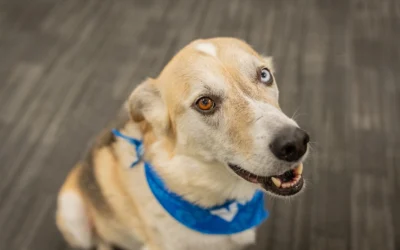Psychiatric nursing: MacEwan’s not-so-long distance sister program
For the past fifty years, MacEwan University has been home to many diverse and specialized programs. And these programs aren’t just limited to Edmonton’s downtown city centre campus. In Ponoka, Alta., 100 kilometres south of Edmonton, lies the host building for the university’s diploma of psychiatric nursing program.
The two and a half year program started in 1930 at the Centennial Centre for Mental Health and Brain Injury, and ran until 1996 which was when MacEwan took it over.
With only one intake per academic year, the program starts off with 30 students, all of which have different backgrounds and experience levels. The campus itself is attached to the hospital, with three classrooms for lectures, labs spaces for hands-on work, and hospital wings for practicums.
It’s easy to assume that a program held in Ponoka would only appeal to locals due to the small campus, but Randi Ziorio Dunlop, an assistant professor and the chair for the department of human health and science, thinks just the opposite. As well as Edmontonians, “now what we see is…students who live in the area or from farming communities, and a lot of students will come from Calgary as well,” she says.
There’s a group of students who live on the south side of Edmonton who carpool to the campus, Ziorio Dunlop reveals. “That’s one thing we see with the Ponoka students,” she adds. “They really build a good sense of community because they are a smaller group.”
But, the selective student population and small town charm aren’t the only differences from MacEwan’s main campus. The class schedules are a lot more accommodating, Ziorio Dunlop says. Classes are run in three-hour chunks, and students get a full day off during the week.
“I think after COVID, it’s [the program] brought so much to light about how much people have struggled, and we haven’t seen the end of that. People are still really struggling.”
Randi Ziorio Dunlop, Assistant professor and the chair for the department of human health and science
For additional student resources like health care and dental benefits, transit, legal help, and other SAMU services, the Ponoka group is pretty much like any other student on the city centre campus. The psychiatric nursing program offers all of the same services to their students, and they even have the option to take part in school clubs or student governance by joining the student council team. Ponoka students are also invited to all of MacEwan’s events, including Fall Fest, SAMU’s Pantry and Breakfast Club, and more. Yet, this requires them to travel to the downtown Edmonton location to actually access these resources.
So, what really is this program?
Psychiatric nursing is a specialty within nursing for students to learn how to enter the psychiatric health-care industry and become registered psychiatric nurses (RPN).
Originally, the profession came out of needing to staff psychiatric hospitals, which mostly only operate in Canada’s four western provinces. Now, it’s turned into an entirely new industry. Students get the opportunity to do hands-on work while maintaining the university experience with classroom lectures.
The students range from experienced people with nursing credentials from other countries, recent highschool graduates, and to people who are coming back for a second career. Out of the 30 students selected for this program, “you always get a little bit of everything,” Ziorio Dunlop says. “I think the older people — who have lived a life before — come with a different level of experience and a calmness. While the people straight out of high school have that energy and passion. So, those two things are always really nicely joined together.”
The faculty in this program are all nurse educators and professors who teach exclusively at the Ponoka site. These professionals teach a range of studies, from hospital lab work and clinical placements to theory, social science, and health lecture courses. The full-time program offers credited clinicals for students in their second year of studies. Students can be placed anywhere from medical institutions in Wetaskiwin and Camrose to bigger centres in need of psychiatric professionals, like the Red Deer Remand Centre.
After graduation, the students focus on careers within the areas of mental health, as well as assisting patients with mental illnesses who may have other medical conditions. Graduates can work “in the community or hospitals, with children, people of advanced age, or in addiction settings like residential treatment and detox,” Ziorio Dunlop says. “Rural areas are really in need, so they can do travel nursing….The options are kind of endless.”
“The options are kind of endless.”
Randi Ziorio Dunlop — Assistant professor and the chair for the department of human health and science
And, with the Ponoka program specifically, Ziorio Dunlop revealed that students have a 100 per cent employment rate just after six months following graduation.
Moving forward, Ziorio Dunlop hopes to grow the program and educate more incoming nursing students about their options. “This program tends to get lost in the big shuffle of students [at MacEwan],” she says. “ We’ve tried to get everyone to hear about Ponoka.”
One thing that Ziorio Dunlop wants both current and incoming students to know “is that psych nursing is a very important part of our healthcare system,” she says. “I think after COVID, it’s [the program] brought so much to light about how much people have struggled, and we haven’t seen the end of that. People are still really struggling.”
Psychiatric nursing is an invaluable part of the faculty of nursing, but many don’t realize that it’s even there unless the students are already in nursing. “It’s not hidden, moreso as people don’t see it,” she adds. “But, just because people don’t see it, doesn’t mean it’s not there. Ponoka is such a beautiful place,” she explains. “It has such a rich history in our province.”
There’s a lot of stigma around addiction and mental illness in Alberta, but part of the stigma may be due to the lack of resources and professional help. According to Ziorio Dunlop, the more practitioners available, the better.
For aspiring nurses themselves, the program is a great option for people who want to make a real difference and help others in the community. It gives students the opportunity “to be with people at their most vulnerable at some of the worst moments of their life,” Ziorio Dunlop adds. “When you have that skill and education to be able to help…there’s such joy that can come from that type of work. It is rewarding.”
Photo from MacEwan School of Psychiatric Nursing webpage





0 Comments